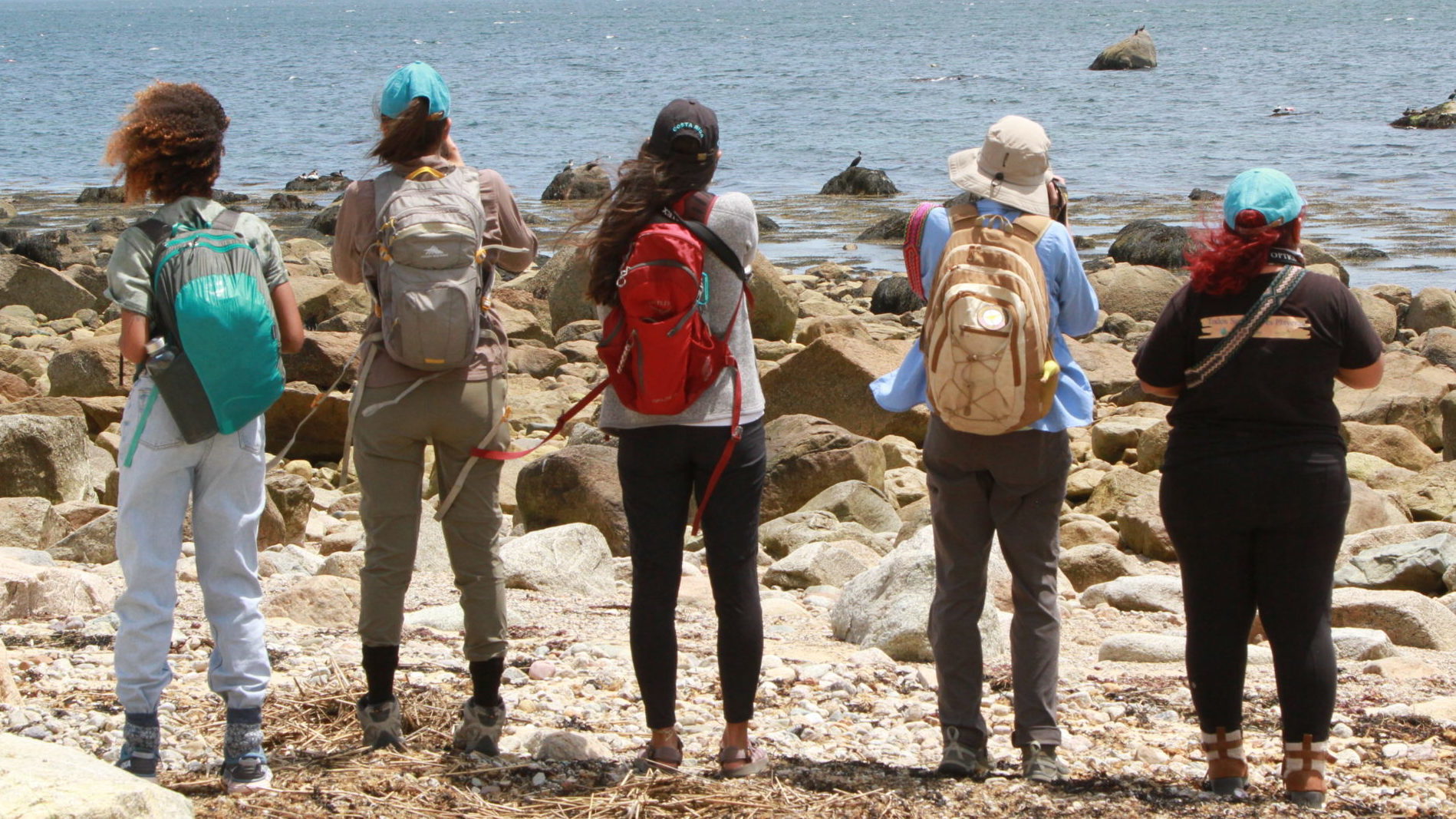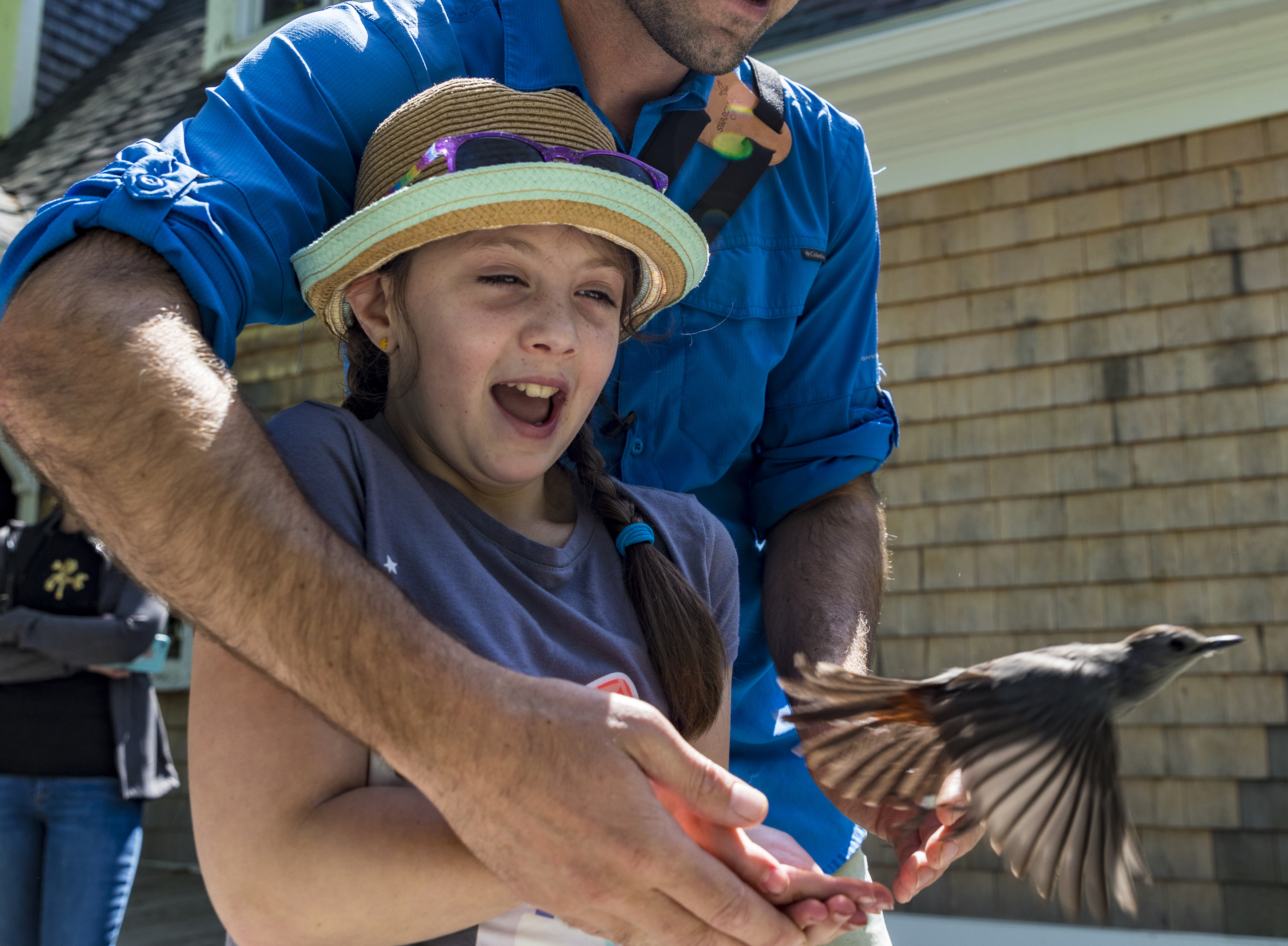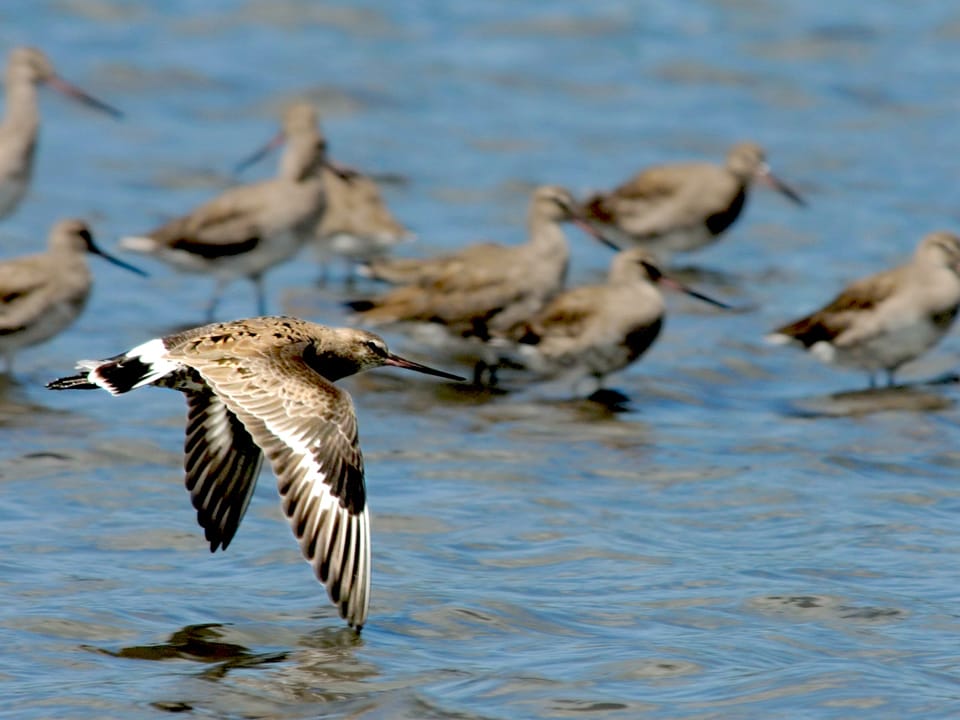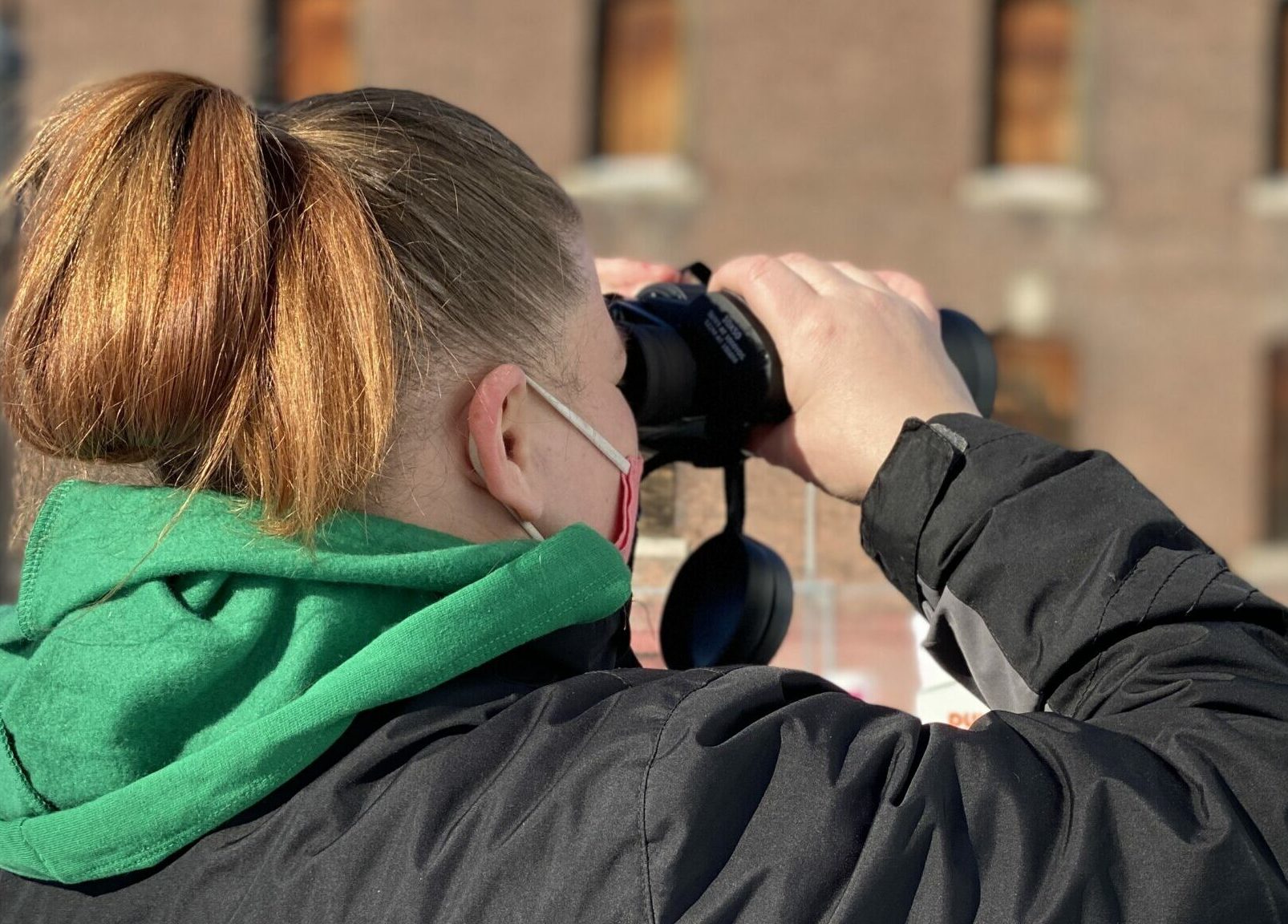“This is going to be such a bird nerd week!”
On a Friday in early June, I stood near baggage claim at Logan International Airport in Boston, where I was meeting the participants for Manomet’s inaugural Ornithology Careers Institute (OCI), a weeklong intensive learning experience that provides hands-on training to up-and-coming ornithologists from across the Western Hemisphere.
As our small group grew with each new arrival, we talked about school, career dreams, airport food, and most of all, the anticipation of spending a whole week with like-minded birders.
The next week was as exciting as we had hoped it would be. Working together onsite at Manomet Observatory in Plymouth, Massachusetts, we banded birds, conducted field surveys using a variety of techniques, banded more birds, chased each other around the 40-acre property using radio telemetry, banded Tree Swallow nestlings, grew everyone’s birding life lists in a variety of habitats, and even — one stormy day when we had to close the mist nets due to rain — learned how to prepare bird specimens for museums.
Our participants had roots in diverse communities across the Western Hemisphere: Colombia, Mexico, Nicaragua, Puerto Rico, and the United States, and all were recent college graduates. Spanish and English intermingled during each session. They came together over the birds and the science, sharing fieldwork stories and grad school plans.
The OCI is a collaborative effort between Manomet and Amplify the Future, an organization dedicated to creating and amplifying opportunities for BIPOC students in conservation, STEAM, and birding-related careers. Manomet has a long legacy in ornithology, but trainees in Manomet’s banding lab have been overwhelmingly white, reflecting the majority of internship applicants who have ornithology field experience.
“Moving up in the conservation and ornithology world often begins with a lot of unpaid labor that excludes a large percentage of the population, [and] only those with generational wealth can typically afford the experience,” says Yamina Nater-Otero of Amplify the Future.
To make the pipeline to ornithology careers more inclusive and diverse, Manomet and Amplify the Future launched the OCI to provide BIPOC college students with the hands-on ornithology field experience that’s needed to attain competitive ornithology internships and other paid fieldwork opportunities.
The Ornithology Careers Institute gave me the opportunity to explore new ornithological skills and learn more about the variety of conservation careers that I aspire to accomplish. I’m so grateful to have had the chance to share this experience with my fellow OCI participants. Our different backgrounds enriched the experience even more and we got to learn a lot from each other.
Anonymous - OCI PARTICIPANT
“I believe that the institute is an enormous opportunity for the development of future professionals with a comprehensive vision,” says Manomet’s Salvadora Morales, a shrimp and shorebird conservation specialist based in Nicaragua. She traveled to Manomet headquarters to co-lead the OCI alongside Evan Dalton, director of Manomet Observatory. “Sharing [stories] with the students of the institute reminded me that this is how I began my career in ornithology and the conservation of migratory birds.”
Morales says the most important strengths of the institute are its global and diverse perspective, the diversity of training activities offered, and the networking and community building that participants experience. In addition to meeting Manomet HQ staff and their institute peers, OCI students also Zoomed with scientists in Honduras, Ecuador, Georgia, and Louisiana, gaining new professional contacts that can serve as mentors as they move forward in their careers.
At the close of the week, I found myself feeling grateful: for my Manomet colleagues Evan, Salvadora, and many others who worked tirelessly during the institute to share their expertise and support our participants; for Yamina and our other Amplify partners who have worked so hard to advocate for OCI students and to make their week with us as valuable and meaningful as possible; and for Manomet’s spring 2022 banding team who helped with OCI training sessions and welcomed OCI participants to live alongside them in Manomet’s Widewater house during their weeklong stay.
Most of all, I’m grateful for the student participants in OCI, who chose to share with us this week their talents and personal experiences. They were patient with the challenges and missteps that come with hosting an inaugural event, and they have been generous with their feedback and enthusiasm. They are all amazing birders headed for impressive careers. The goal may have been to provide OCI participants with training and future career opportunities, but the experience was also incredibly inspiring for the Manomet team.





 Back to all
Back to all


